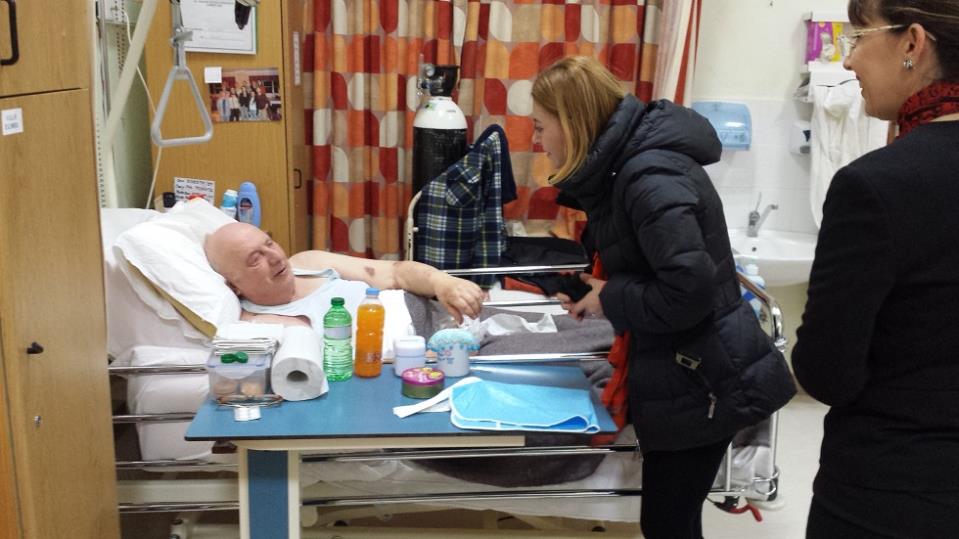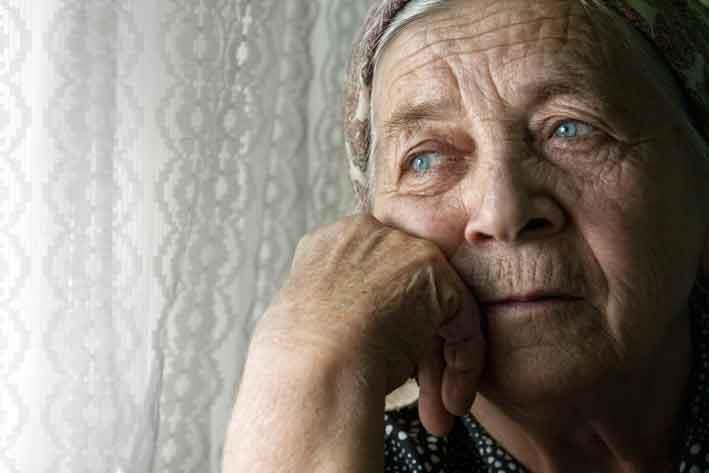A Bill currently being drafted by Parliamentary Secretary for Active Ageing JUSTYNE CARUANA has drawn criticism from its inception. In certain situations, the state would be given the authority – via pre-existing and established structures to administer the assets of ‘neglected’ individuals. In an interview with Kevin Schembri Orland, however, Dr Caruana emphasised the fact that if a person did not want the state to administer his or her assets, then their wishes would be respected.
The bill, she explained, contemplates situations where a person needs help. Assessments on the person’s situation would be carried out by professionals under the auspices of the implemented structure.
The proposed bill would allow the state to intervene in cases where an elderly person has been neglected, or where adults are in need of protection, but it will use existing structures such as the Guardianship Board in its implementation, she explained. The bill would allow the state to present cases to place under guardianship, individuals who are living in a condition of neglect.
In addition, Dr Caruana said that currently there is a grey area within the law when it comes to professionals taking certain action without the consent of a relative – for example when a vulnerable and abandoned person requires urgent assistance following an accident. This law would allow professionals to take action, under the scrutiny of the courts.
As a concrete example, she said that someone would report that a person has been left abandoned, living in dreadful conditions, whose health and well-being is in peril. Professionals would be able to take necessary action, such as administering medication or other medical treatment, if the person is unable to give consent for any reason, and even surgical intervention. Dr Caruana explained that, as matters currently stand, the state can only intervene to a certain extent.
The structure in place would allow social and health care professionals to make the assessment and say what needs to be done. “We are speaking with regard to people who cannot make their own decisions”.
Public outcry surrounded the bill when it first surfaced, but Dr Caruana contended that she had been misquoted as having said that the state would have the right to withhold a person’s Will from the family in cases where that person was neglected. She clarified this, saying that it was not the case and giving assurances that the state would do no such thing.
Dr Caruana stressed that the bill is still at the draft stage, but made the point that professionals are saying that such legislation is needed – bringing as an example the recent court case regarding an abused, disabled woman. An exact definition of what constitutes a ‘neglected and vulnerable person’ at this stage cannot be given, she said, as the exact definition is still being worked on.
“You could ask” said Dr Caruana, “why should the state interfere? The answer is because when there is a case of abandonment, people ask ‘where is the state’. It is the obligation of the state to take care of people who end up in this situation, but few people know that if the courts do not become involved, decisions cannot be taken. So we will be setting up a structure where immediate decisions can be taken under court scrutiny. For example, at present, if a vulnerable person is abused and there is a need for professionals to intervene, there is no legal structure to enable them to do so: it’s currently a grey area. We are planning to address this grey area through this bill, for the benefit of vulnerable people who are in need of protection.”

Here Dr Caruana discusses her thoughts and aims on the yet to be published bill with this newsroom.
What are your ideas for the bill and where would you like to go with it?
At the moment there are vulnerable people, living in circumstances that should be addressed as quickly as possible. As things are however, the law precludes certain professionals from taking the action required. We want to create the necessary framework to allow them to act and take decisions. Obviously, there would be a scrutinising and monitoring mechanism that will enable a vulnerable person in danger or in serious circumstances to be helped immediately and not over a period of time, which might be damaging to the well-being, health and safety of the person concerned.
Will this help be voluntary or mandatory?
It’s not a matter of voluntary or mandatory, it’s a matter of having a case that must be addressed in the shortest time possible and in the most appropriate and adequate manner. The law will stipulate how a case should be reported, where it should be reported and how it should be dealt with. There is a vacuum on this at present and this legislation will provide the framework.
Was there a particular case that prompted you to bring this bill forward?
a number of cases have been brought to my attention – this is not a problem that cropped up recently. There has always been a problem with how to handle this sort of case and various professionals working in the sectors of disability and the elderly have long felt the need for this type of mechanism to lay down procedures. We recently received an email with photographs of an elderly lady with a huge bedsore where the bone was visible. She lived alone, had been abandoned by her family and was receiving home services.
Bed sores appear over a very short period of time, so in-between visits, the person providing community service to the lady noticed the sore and the case was reported to me in order to take the necessary action. In the meantime, we are providing residential services but since there are family members the decisions taken may be challenged and contested by them. The professionals involved feel that, in such instances, although they are doing what they are duty-bound to do, they are being unnecessarily exposed to legal action contesting their actions.
Why does the state want to administer the property of those who have been abandoned? Are there no legal structures already in place?
If a vulnerable person is abandoned, and can neither take care of themselves nor administer their assets, then they need help. Today, we already have a number of structures in place, curatorship and guardianship. What we are saying is that, through this bill, if a vulnerable person needs help from the state, the state will be able to initiate proceedings which will allow curators or guardians to be appointed to administer the property, rather than requiring a family member to do so.

Can the Attorney General not do this?
Through the Mental Health Act, yes. This is not a mental health issue; it is a physical, psycho-social issue. Once a person is abandoned, someone must care for them, and the state will create the various structures to do this, including the administration of assets. We have many circumstances of economic abuse, where family members take money from their elderly and vulnerable relatives without caring for them, and this is something we need to tackle.
We have contracts of donations and Wills drawn up with specific conditions for caring for the donor or the testator, but once the contract has been signed or the Will drawn up, they end up being abandoned just the same. This is abuse and we have had thousands of court cases dealing with such issues. Through this legislation we envisage being able to curb this abuse.
What if the person does not want the state to administer his/her property?
If they are in a position to take decisions and don’t want this assistance, then their wishes will be respected. We are speaking of cases where a person is basically helpless. If they don’t want help, it won’t be forced on them, as long as they are in a position to make such decisions. Our legal system already provides for such situations – for example in terms of the Mental Health Act. We are speaking here about people who do want help.
If the person opts to have the state administer their property, would this person be consulted and have a final say on the decisions taken?
The system as it stands allows for curators and guardians, and there is a difference. Through the curator system, the curator would decide, obviously under court scrutiny. As for guardians, the mechanism is different and decisions taken by guardians are through consultation with the individual concerned and with the Guardianship Board and this is what we are looking at. There are situations, however, where consultation with the person isn’t possible. This is why we are considering a situation with both the Guardianship Board and the courts, to cater for some cases.
Will the final say lie with the guardian or the individual involved?
The individual is crucial. The focus is on the person who needs help and assistance, not the guardian.
So the person will have the final say?
There will be a mechanism in place by which what the person wants will be respected and the decisions taken will be compatible with the wants and needs of the person. This is where we are heading. There are many experts giving their opinions on the draft and until we have the final draft I cannot say if we are going one way or another, but there will be a wider consultation later. Ideally, we will arrive at an agreed text.

As of this stage, have any NGOs or councils been consulted yet?
Up until now we have consulted experts who may pertain to NGOs, but not representing NGOs. That will come at a later stage.
Who would determine if a person is abandoned?
The state of fact. For example we would receive a report by someone that there is someone who has been abandoned and in distress. Then the professionals will write a report, which will trigger the process. Then an assessment will be carried out to ascertain how this person came to be abandoned and what is to happen from that point on.
What checks and balances will be in place to ensure that those administering a property are doing so in accordance with the wishes of the owner?
In terms of curators there are obligations through the law, and when it comes to the Guardianship Board, obligations also exist within the Civil Code. So, the safeguards already exist and obviously one would act according to procedure.
We are also contemplating a larger mechanism for the family courts. It is a very sensitive subject and we must have safeguards in place to ensure there will be no abuse at any time. We are drafting this law to combat abuse and not to provide an opportunity for further abuse. So having Civil Courts, the Voluntary Court, the Family Courts and the Guardianship Board involved, we are creating different tiers of scrutiny mechanisms. Up until now, there is no law that encompasses all these levels of scrutiny. Could it be said that we are overdoing it? This is still being discussed and we are not excluding having these diverse tiers of scrutiny mechanisms.
The existing Guardianship Board will handle the cases, with its present composition and procedures.

You mentioned changing or amending the Civil Code. What did you have in mind?
There are two cardinal principles in the Code that we are looking at. The first is that a person is obliged to maintain their family members. There is a section that says that sons and/or daughters must provide for the needs of their parents if they need help. This already exists, but we are looking at how it is enforced. When it comes to the maintenance of minors, the parents go to court, but in many cases the elderly who need help don’t have the means or the ability to take legal action. We are looking at ways to help facilitate this.
Taking care of one’s parents is not just a moral value, but also a legal requirement. So if someone wants to enforce this today, they can do so. There are, however, very few who know they can do this.
We are also looking at adding abandonment and abuse as grounds for any testator to declare in his or her Will that a person is unworthy of inheriting the estate. But the choice will always remain with the testator or testatrix – not the state. The legislator would only amend the law so that the testator has the ability to use it if he or she wants to do so.
Can this bill not be seen as interfering in private lives? For example, there could be a bad relationship between the elderly person and their children.
This is for the courts to decide. It is similar to other cases where the court evaluates the situation and makes a judgement. Even in cases involving minors, the court decides. So are the courts interfering in private lives? No, they are there to help people.
When we are speaking of those who are vulnerable, I assume this does not mean they are incapable of administering their own property.
Each case will be assessed and if it results that the person can administer his/her own property with only a little help, then why not? The structures will be in place. But if there is someone who cannot take care of him/herself or his/her property, there would be a structure in place that can do this for him/her. Strictly speaking, these already exist but under different mechanisms. We will be using mechanisms in place, but under a different structure.

Who will take these decisions?
The Law Courts and the Guardianship Board. It will not be the social workers.
You had said that if an elderly person ends up in a vulnerable and dangerous situation because of his or her family members, then they must carry some of the burden, What do you mean by ‘they must carry some of the burden’?
Not the burden, but responsibility. A law that passed through Parliament recently states that if an elderly person is abused, even by family members, they must be held accountable. Saying that you are their son or their daughter no longer holds. If you have abused your elderly parent, or because of your failings your parent ended up in a vulnerable situation, you will be held accountable. Neglect is also abuse.
What if the person’s children, for example, live in Australia?
If their children live in Australia, shouldn’t they ask someone to check if their parents need assistance? This irritates me, and I used to see a lot of it when I worked as a lawyer. When people living abroad learn of their father’s death, they come back and remain in the country just long enough to find out the contents of the Will. If the person wants to contest the Will, they hire someone to open a court case while they are abroad. Therefore, they do know how to handle situations in Malta although they live abroad. I’m not saying it’s always easy; I’ve had cases of people living abroad whose parents are in a home and who write to me. They tell me, ‘I called my mother and she told me this’. What a difference! These people living abroad still keep in contact with their parents. There are ways of monitoring your parent’s wellbeing if you do not live in the country.
What if relations between the parent and child were bad?
That’s another issue. It is not up to the state to interfere with regard to good or bad relations between children and their parents – that is a private matter. But the State needs to take care of those in a vulnerable situation, regardless of their relationship with their family. That’s why this law is needed.